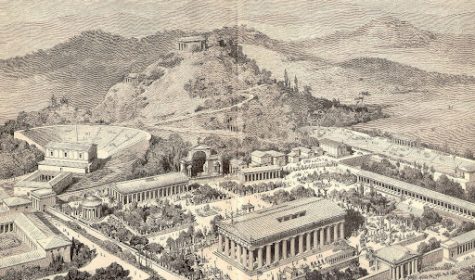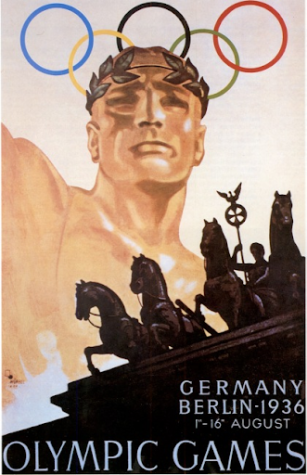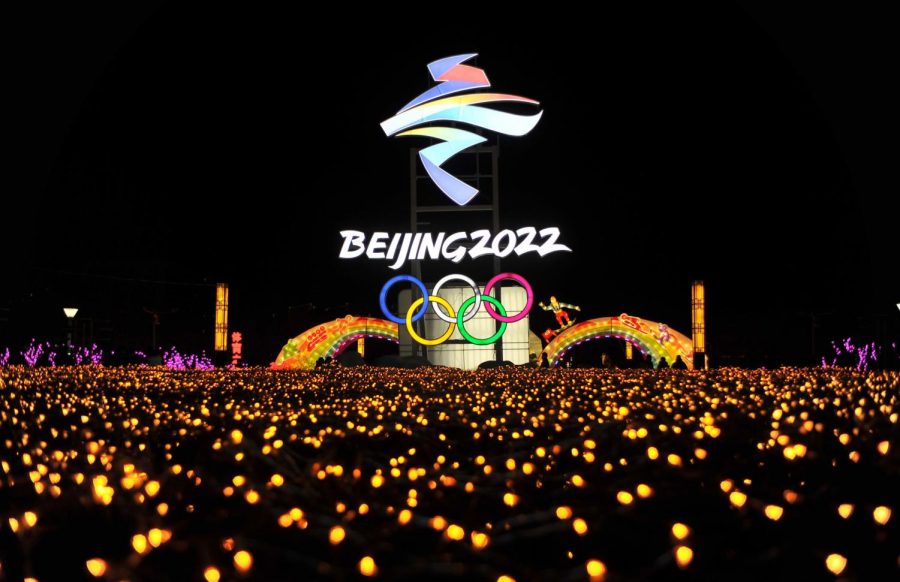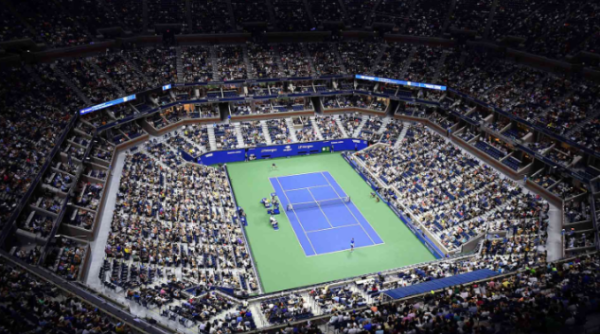Politics in the Olympics: Beijing & Berlin
January 13, 2022
Politics and the Olympics have gone hand-in-hand for over 2,700 —most historians agree the first Olympics in Ancient Greece were held in 776 BC (2,798 years)— years, and the biennial event this year is no exception. The upcoming Winter Olympics will be held in Beijing, China starting February 4th, 2022 and will end February 20th, 2022.
Beijing Bustle
Beijing 2022 will mark the first time a city will host both the Summer (Beijing 2008) and Winter Olympics, and it will take the opportunity to reuse venues from the 2008 Games, such as the Bird’s Nest Stadium Beijing has also announced its intentions to host the Games using entirely renewable energy. The Opening and Closing Ceremonies will be directed by Academy Award nominated director Zhang Yimou, who directed the critically acclaimed 2008 Opening and Closing Ceremonies.

The 2008 Ceremonies celebrated millennia’s worth of Chinese history and culture, but according to Zhang, the 2022 Ceremonies will focus more on “the future and unity from a global, societal perspective”, with modifications in presentation made due to the pandemic. Compared to the 2008 Games’ price tag of more than $40 billion, the 2022 Games has a promised budget of $3.9 billion. (However, the Saïd Business School at Oxford has found in a study that the Olympics has a 100% consistency of overrunning its budget by an average of 179%.) China won the bid for the 2022 Winter Olympics in 2015 by beating Almaty, Kazakhstan by four votes.
On December 3rd, 2021, Lithuania was the first to announce a “diplomatic boycott” of the Beijing 2022 Olympics, following a decline in Sino-Lithuanian relations.
The United States announced their diplomatic boycott three days later on December 6th, citing their reason as “human rights abuses”. 18 US officials later applied for Chinese visas for providing “consular and diplomatic security services” to athletes.
On December 8th, Australia, Great Britain, Canada, and Kosovo announced their diplomatic boycotts, followed by several more at later dates. A diplomatic boycott is a boycott in terms of politics, meaning the country in question does not send any “official delegates” but still sends its athletes to the Games to compete. At time of writing, there are currently 12 countries not sending political representatives to the Beijing 2022 Olympics, with three citing COVID-19 factors instead of political ones.
Tracing it Back to the Past
While today the International Olympic Committee (IOC) tries to keep the Olympics as politically neutral as possible, politics itself has been a part of the Games since the beginning.
During the Ancient Olympics of Ancient Greece, an Olympic truce is called of wars to ensure the safe arrival of athletes and spectators. This is still tradition today for the modern Olympics, and is greatly supported by the United Nations. In light of their diplomatic boycotts, the United States, Japan, Turkey, India, and Australia refused to sign the Olympic Truce for the 2022 Olympics.

Even during the Peloponnesian War (431 BC-404 BC), the Games went on, serving as a place to announce political alliances and offer sacrifices to the gods. Sparta was banned once in 420 BC for dishonoring a truce.
In the Ancient Olympics, the city-states of Greece contended against each other, using the Games as means for peaceful competition. Olympia became a place to discuss treaties and political negotiations. A handful of Olympic champions were also politicians and used the Games as a platform for self-promotion and political propaganda.
The Nazi Olympics
Prior to the pandemic, the Olympics have only been cancelled in the event of world wars (So far, there’s only been two), but that doesn’t mean that politics hasn’t had a significant influence on the Games when they happen. In modern history, there has been one particularly notable case of major political interference within the Olympics.
The 1936 Summer Olympics were hosted in Berlin, Germany and are commonly known as the Nazi Olympics. Berlin won the bid to host the 1936 Games in 1931, two years before Adolf Hitler and the Nazi Party rose to power. Hitler saw the Olympics as a prime opportunity to both promote his government and ‘prove’ his ideals of racial supremacy, and spared no expense constructing a magnificent sports complex, stadiums, and Olympic village.
The Nazi regime used posters, newspapers, and other athletic imagery to promote the “Aryan race” and antisemitic ideology, but took down the overtly anti-Jewish signs and slogans from around the city to prevent rising suspicions.

A grand opening ceremony, numerous German victories, and skilled organization did its job; the New York Times (and other newspapers that echoed similar sentiments) praised: “[the Berlin Olympics were] the biggest athletic games ever held, the most largely attended, the best organized, the most picturesque and the most productive of new and startling records… [and] made the Germans more human again.” (Birchall 5).
Despite all of the brilliant preparation that Hitler and the Nazi Party did to reenforce their regime and ideology, a high-speed adversary disrupted their plans. Jesse Owens, a Black American, won four gold medals in sprint and long jump events. In an event designed to prove white supremacy, a Black man won the most gold medals out of any competing athlete, and set new world records while doing it.
Even though Owens was credited with “single-handedly crushing Hitler’s myth of Aryan supremacy”, he was disrespected by his own country: “When I came back to my native country, after all the stories about Hitler, I couldn’t ride in the front of the bus. I had to go to the back door… I wasn’t invited to shake hands with Hitler, but I wasn’t invited to the White House to shake hands with the President [Roosevelt], either.”.
Owens was posthumously awarded the Congressional Gold Medal by President George H.W. Bush in 1990.
Political affairs have always affected the Olympics, from thousands of years ago to modern day. The consistency of hosting the Olympic Games represents the unity of nations in the face of such affairs and hope for the future.









